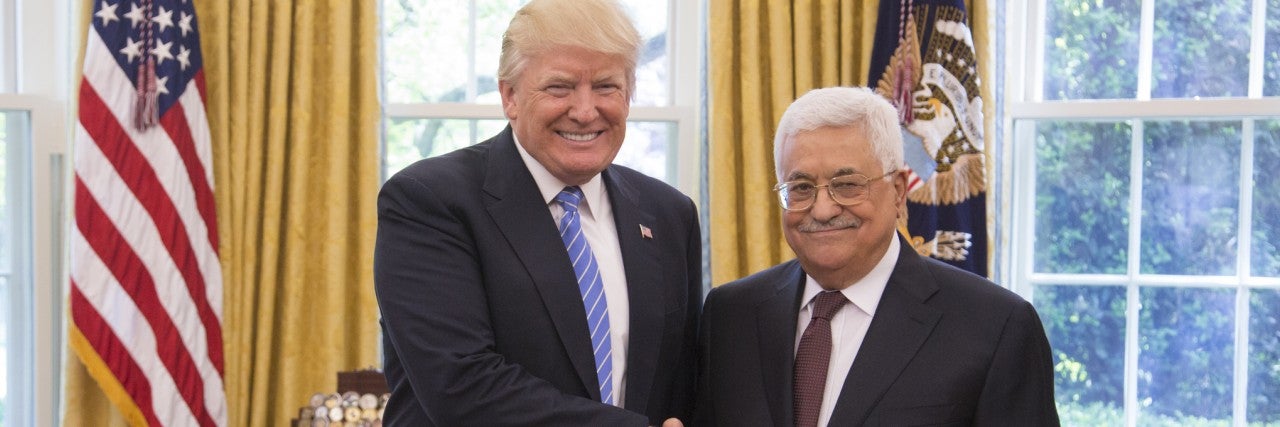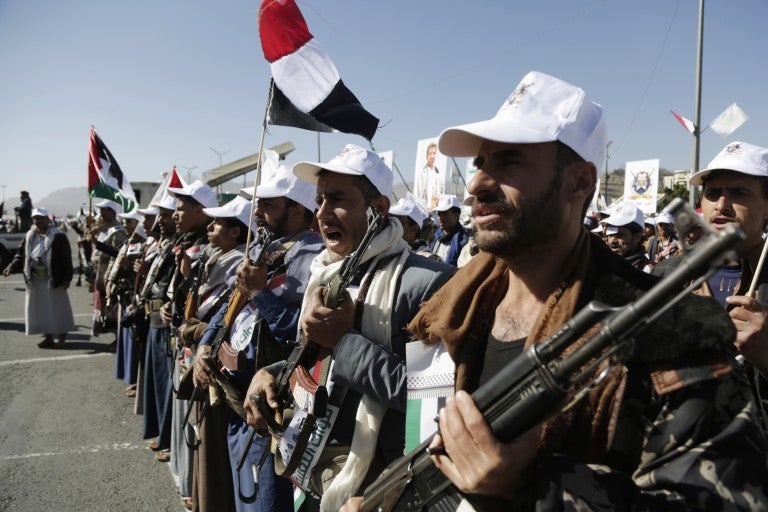May 5, 2017
Article Written By: Col. (Ret.) Dr. Eran Lerman
Executive Summary: By all accounts, the meeting at the White House between President Trump and Palestinian Authority President Mahmoud Abbas went well, as the American president expressed optimism about prospects for reaching a solution to the Israeli-Palestinian conflict.This came as something of a surprise, since Trump is viewed—fairly or unfairly—as significantly more pro-Israel than his predecessor, Barack Obama, who, despite expressing sympathy for the Palestinian cause, was unable to make progress on the peace front. However, as Eran Lerman shows, there may be reason for hope: when an American administration is seen as sympathetic to Israel, Jerusalem may be more likely to compromise; and Abbas, for his part, can legitimately explain to his people that in a Trump administration they need to settle for less than their most extreme demands.
There is something paradoxical about the sense of hope that seems to have taken hold after Palestinian Authority (PA) President Abbas met with President Trump in the White House on May 3—and even more so about the extravagant claims the American president madeabout how easy it may prove to be to solve the Israeli-Palestinian conflict. How can this conceivably happen under Trump, who carefully avoids any descent into the details of this—or any other—extremely complex issue, and whose basic instincts (and close personal relationships) are assumed to be fiercely pro-Israeli, while former President Obama and Secretary of State Kerry, well-informed and attentive to Palestinian sensitivities and needs, ultimately failed to move the needle at all? In fact, they left the peace effort, after eight years, in a worse state than it had been under President Bush and Secretary of State Rice after Annapolis. Is the newfound optimism just wishful thinking?
Not necessarily. Five factors have changed in ways that make a new start imaginable:
- To begin at the Israeli end: it is always difficult for Israeli leaders to take any tough decisions while there are serious tensions with the U.S. administration—and easier to do so at times of close coordination and a degree of mutual trust (an element largely lacking in recent years). The notion that creating "daylight" between the U.S. and Israel would be conducive to the peace process was the basic mistake of those in the previous administration, indeed of President Obama himself, who used this language early on. Instead of making the U.S. more credible as an "honest broker," as the U.S. hoped, this in fact frightened Israeli decision-makers and made them more risk-averse, while at the same timefanning the fires of Palestinian fantasies about what the U.S. may be able to impose on Israeli Prime Minister Netanyahu. Neither reaction did much to make peace more likely.
- Moreover, the behavior of the American administration in 2011—driven as it may have been by excellent practical reasons, and by a noble hope to go with the “arc of history"—put a distinct chill on the prospect of Abbas or other Arab leaders taking any risks for peace. Seeing a loyal ally of the U.S. like former Egyptian President Mubarak dropped overnight and left to his fate was a profound shock for a Palestinian leadership that in the late 1980s understood the need to reorient the Palestine Liberation Organization (PLO) in an American direction. With Trump's key players—Secretary of Defense Mattis and Secretary of State Tillerson – both mindful of the Saudi position and busy rebuilding what the Reagan administration called a "strategic consensus" in the region (with Israel as an organic part thereof), there is now on both sides a feeling of strategic reassurance that may be conducive to a breakthrough.
- Even more paradoxically, the Obama-era pro-Palestinian tilt in U.S. policy paralyzed the ability of the Palestinian side to take and implement tough decisions. Why should they risk a compromise on matters of importance, especially if the U.S. is anyway predisposed towards their point of view on the territorial dimension and on settlements—as indicated by the abandonment of the Bush letter of April 14, 2004, and, more recently, by UN Security Council Resolution 2334 on settlements, which passed in December with a U.S. abstention; and when there is never any prospect that Israel can win the blame game (remember Kerry's "poof" moment in 2014, when he described at a Senate hearing the lack of progress in peace talks, assigning considerable blame to Israel)? With Trump, the Palestinians may perhaps end up with less—but their leaders can at least explain the need for compromise to their people by pointing to what they gained by their own effort, given how much they have been able to move Washington away from what they see as dangerous pro-Israel ideas.
- This is precisely why issues such as moving the embassy to Jerusalem and berating Abbas for paying pensions to the families of murderers can create significant leverage on the Palestinian side: they are not a distraction, but a tool of pressure that helps reshape the relationship from one in which the Palestinians can always safely assume that their positions and practices will be met with a shrug, if not outright approval, to a new dynamic under which it is necessary for them to come to the table without preconditions in order to persuade Trump to relent on what they see as their most sensitive questions.
- For Abbas, moreover, establishing a working relationship with Trump, with all that this entails, is of importance at the present delicate passage in internal Palestinian politics. He is being challenged from the outside by Muhammad Dahlan, former security chief in Gaza, who enjoys the backing of the U.A.E. and other regional players; and from jail, by Marwan Barghouti’s hunger strike, which is clearly designed to shore up the latter's popularity with an eye to succession. He also faces a dramatic confrontation with Hamas, which demands that the PA foot the electricity bill for Gaza, but refuses to give Abbas any political role. The mounting crisis could lead to an explosion, and Israel is searching for ways to avert it.
Not accidentally, this week Hamas chose to unveil—in Qatar, which serves as its regional patron (jointly with President Erdogan's Turkey)—a new policy document that in some respects supersedes—but does not replace—the 1988 Covenant. It has been falsely described as a major departure from past policies, an indication of Hamas's willingness to live alongside Israel. In reality, the text is blunt, clear, and unambiguous in its rejection of any such notions. Israel is an enemy of all humanity, and her existence, as well as the Balfour Declaration and the UN Partition Plan of 1947, are all null and void, as are the Oslo agreements. Terrorism ("the armed struggle") is extolled, and PA security "collaboration" is denounced. None of the "Quartet conditions" set in 2007 by the U.S., Russia, the EU, and the UN—recognition of Israel's right to exist; respect for existing agreements; renunciations of terrorism—have been met.
The document does offer a nod, however, to some basic international norms by shifting from Nazi-style antisemitic tropes to anti-Zionist ones; and to regional abhorrence of the Muslim Brotherhood and Islamist extremism, from which Hamas tries to distance itself. It also suggests that the PLO (which Hamas wants to join, and ultimately to control) may, as a "nationally acceptable formula," negotiate for a Palestinian state on the 1967 borders, with Jerusalem as its capital—but only if the “Right of Return” of every Palestinian to his or her own home would be fully secured. There will be no recognition of Israel, and not one inch of Palestine "between the river and the sea" is to be permanently given up. In all, a sophisticated exercise in repackaging extremism. All the more reason for Abbas to shore up his own place with Egypt and Saudi Arabia and place himself in the regional "Camp of Stability" (to which Israel also belongs by right, nowadays) by going along with Trump's initiative.
Eran Lerman is the former deputy for foreign policy and international affairs at the National Security Council in the Israeli Prime Minister's Office. Prior to that, he served as director of AJC Jerusalem.


